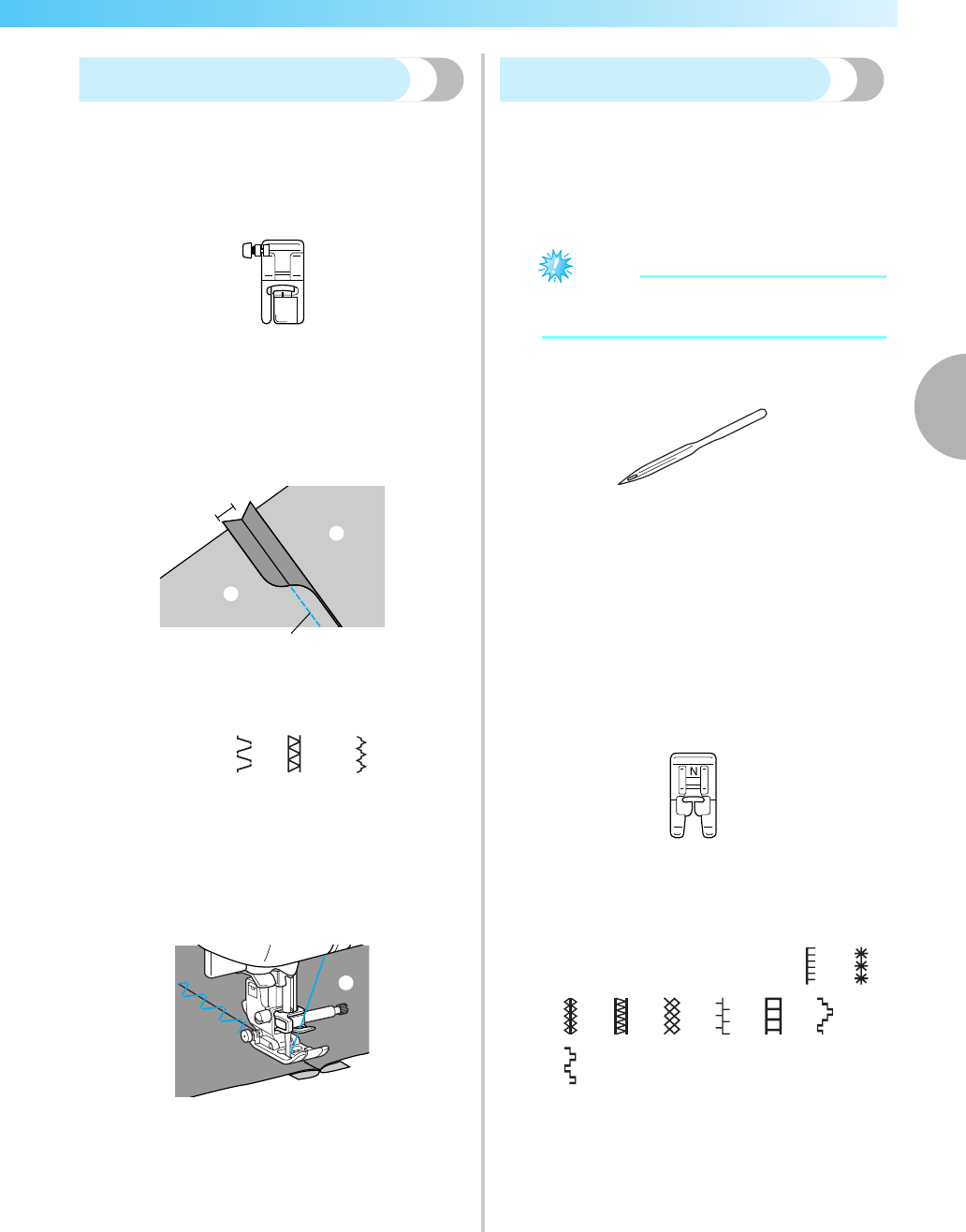
Decorative Stitching 119
—
— — — — — — — — — — — — — — — — — — — — — — — — — — — — — — — — — — — — — — — — — — — — — — — — — — —
—
3
Joining
Decorative bridging stitches can be sewn over the
seam allowance of joined fabrics. This is used when
making a crazy quilt.
a
Attach zigzag foot “J”.
• For details, refer to “Replacing the presser
foot” (page 41).
b
Sew together the right sides of the two pieces
of fabric, and then open up the seam
allowances.
a Wrong side of fabric
b 6.5 mm (1/4 inch) seam allowance
c Straight stitch
c
Select stitch
28
,
29
or
30
.
• For details, refer to “Selecting stitching” (page
72).
d
Turn the fabric over so that the right side faces
up, and then sew over the seam with the
center of the presser foot aligned with the
seam.
a Right side of fabric
Heirloom stitching
When sewing with the wing needle, the needle holes
are enlarged, creating a lace-like decorative stitch.
This is used to decorate hems and tablecloths on thin
or medium weight fabrics in addition to plain weave
fabrics.
Note
z If the thread becomes tangled, use stabilizer
material.
a
Install the wing needle.
• Use a 130/705H 100/16 wing needle.
• For details on installing a needle, refer to
“Replacing the needle” (page 39).
• The needle threader cannot be used with the
wing needle, otherwise the sewing machine
may be damaged. Manually pass the thread
through the eye of the needle from the front
to the back.
b
Attach monogramming foot “N”.
• For details, refer to “Replacing the presser
foot” (page 41).
c
Select a stitch.
The stitches that can be used are
39
,
40
,
41
,
42
,
43
,
44
,
45
,
46
or
47
.
• For details, refer to “Selecting stitching” (page
72).
• Select a stitch width of 6.0 mm (15/64 inch)
or less.
J
1
1
2
3
a


















